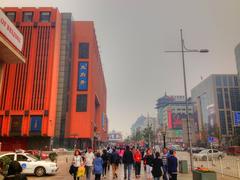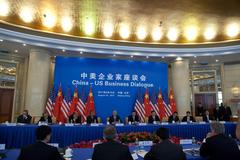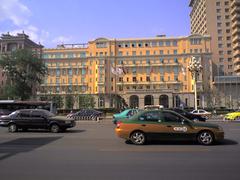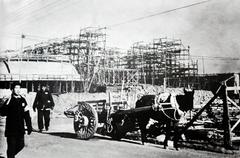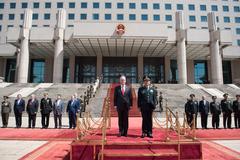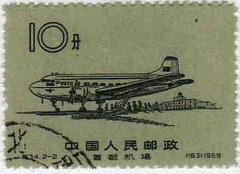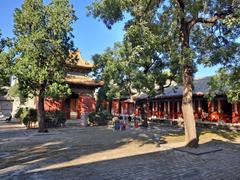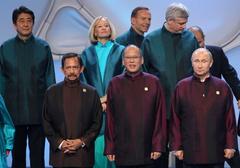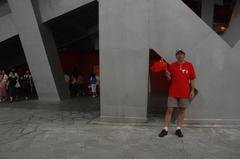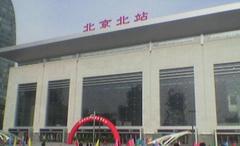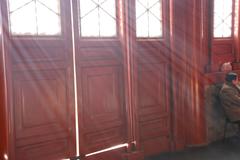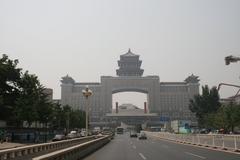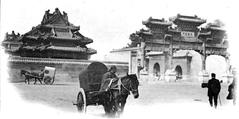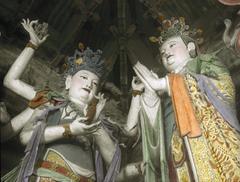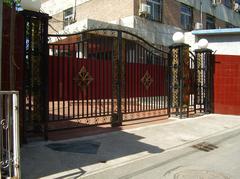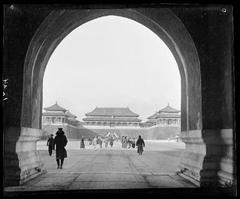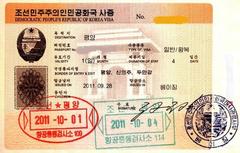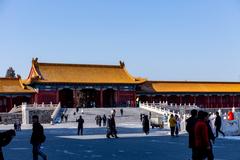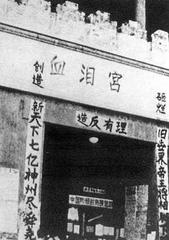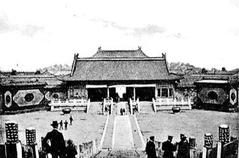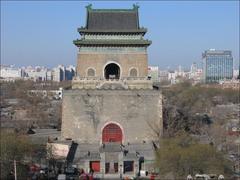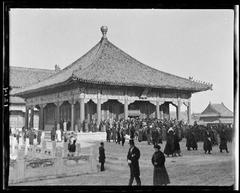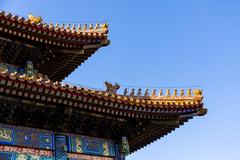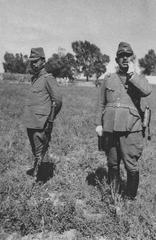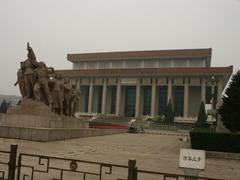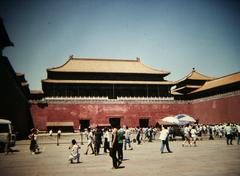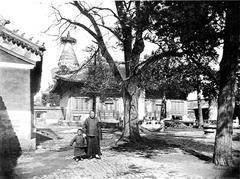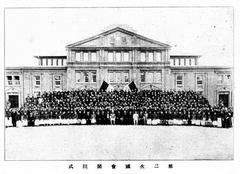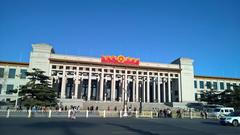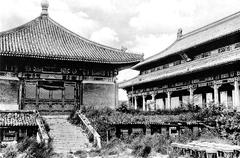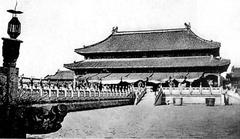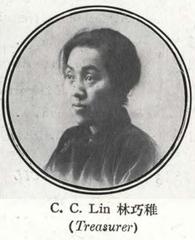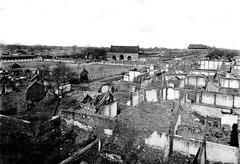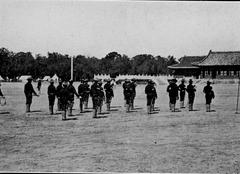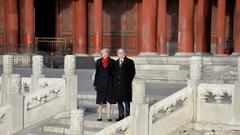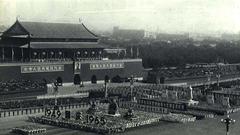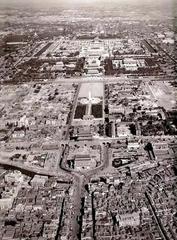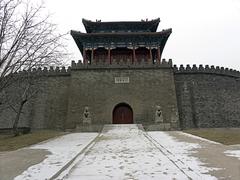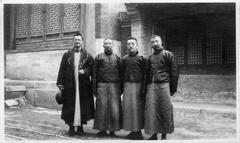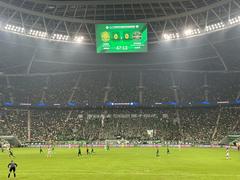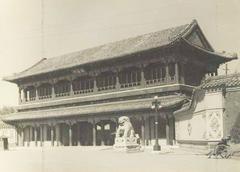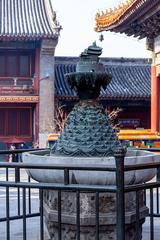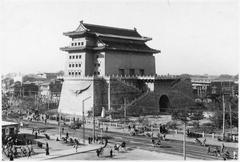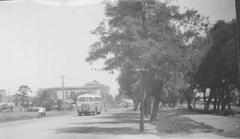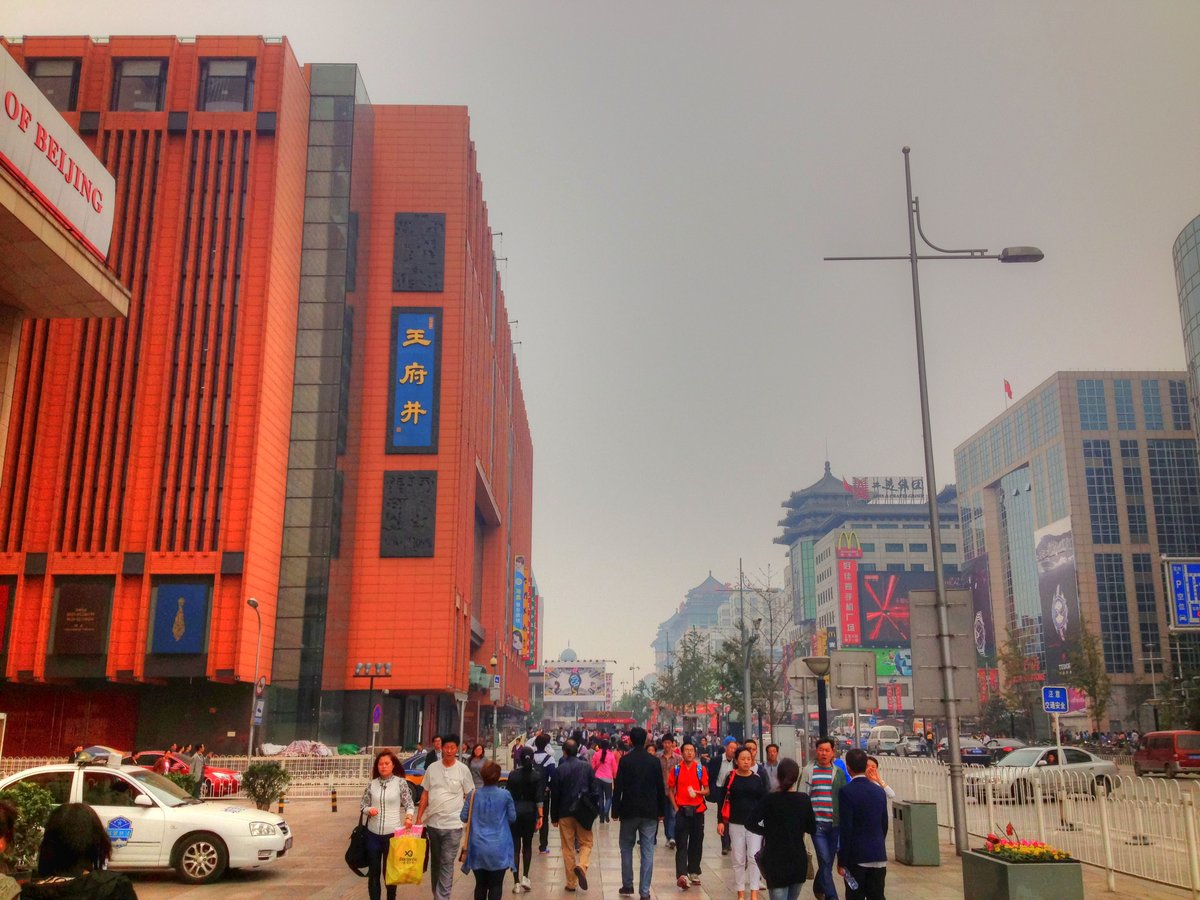
Beijing Hotel: Visiting Hours, Tickets, and Historical Sites Guide
Date: 14/06/2025
Introduction
Nestled in central Beijing, the Beijing Hotel stands as a living monument to China’s dynamic fusion of imperial legacy, revolutionary politics, and global diplomacy. Since its founding in the early 20th century, the hotel has evolved from a modest establishment serving foreign diplomats to a luxurious landmark at the heart of the capital. Its architecture, storied guest list, and proximity to iconic landmarks make it a must-visit destination for history enthusiasts, architecture aficionados, and travelers alike. This guide provides comprehensive information on visiting hours, ticketing policies, accessibility, nearby attractions, and the historical significance of the Beijing Hotel.
Table of Contents
- Introduction
- Historical Overview
- Visitor Information
- Nearby Attractions
- Special Events and Experiences
- FAQs
- Conclusion
- References and Official Links
Historical Overview
Early Origins and International Influence
The Beijing Hotel traces its roots to the dawn of the 20th century, established during the waning years of the Qing Dynasty. Originally founded by French entrepreneurs in 1900, the hotel gained prominence for its Western-style architecture and as a gathering place for foreign diplomats and Chinese elites. In 1915, the Grand Hôtel de Pékin (the hotel’s first wing) opened, symbolizing Beijing’s openness to Western influences (Famous Hotels).
Architectural Evolution
Over the decades, the Beijing Hotel expanded with new wings reflecting a blend of European neoclassical, Art Deco, and modernist styles. Notable features include the grand colonnade of the 1917 wing, later expansions in the 1950s and 1970s, and the addition of modern amenities. The hotel’s interiors combine marble floors, ornate plasterwork, and period furnishings, while landscaped courtyards and gardens provide tranquil retreats in the city center (Chinatripedia, Wikipedia).
Role in Modern Chinese Politics and Diplomacy
Throughout the 20th and 21st centuries, the Beijing Hotel has been at the forefront of China’s political and diplomatic life. It has hosted historic banquets, state visits, and international summits, serving as a preferred venue for government leaders and foreign dignitaries. During the 1970s and early reform era, the hotel was under State Council management and accommodated top officials and global guests (The World of Chinese, NYT Sinosphere).
Visitor Information
Visiting Hours
- Public Areas & Restaurants: Open daily from 7:00 AM to 11:00 PM
- Historical Exhibits & Guided Tours: Generally available from 8:00 AM to 10:00 PM; check for tour-specific schedules
- Banquet Halls and Event Spaces: Access may be restricted during private functions or official events
Visiting hours may vary during special events or political meetings, so it is advisable to confirm in advance with the hotel or on their official website.
Ticketing and Guided Tours
- Entry to Public Spaces: Free of charge
- Guided Tours & Special Exhibitions: Tickets typically required, priced between 50–100 yuan; advance booking recommended, especially during peak seasons
- Booking: Tours and event tickets can be reserved through the hotel’s website, concierge, or authorized travel operators
Accessibility
- Wheelchair Access: Elevators and ramps are available throughout the hotel’s public areas
- Assistance: Staff are on hand to assist guests with special needs; contact the front desk for support
Getting There
- Subway: Wangfujing Station (Line 1) and Qianmen Station (Lines 2 & 8) are within walking distance
- Bus & Taxi: Multiple routes and ride-hailing services connect the hotel with major attractions
- Address: Southern end of Wangfujing Street, near East Chang’an Avenue, Dongcheng District
Nearby Attractions
The Beijing Hotel’s prime location places guests steps from Beijing’s top historical sites:
- Forbidden City: The imperial palace complex, open daily 8:30 AM–5:00 PM (last entry 4:10 PM); tickets 60–90 CNY (Forbidden City Official Site)
- Tiananmen Square: Iconic public square open 24 hours; free entry (Beijing Tourism)
- National Museum of China: Comprehensive museum of Chinese history and culture
- Wangfujing Street: Bustling commercial district for shopping and street food
- Jingshan Park: Offers panoramic views of the Forbidden City
Special Events and Experiences
- Cultural Performances and Art Exhibitions: The hotel regularly hosts events, especially during Chinese festivals such as New Year and Mid-Autumn Festival
- Gala Dinners and Banquets: Historic ballrooms are venues for official banquets and cultural galas
- Photography: The neoclassical façade, grand staircase, and interiors provide excellent photo opportunities
Guided tours offer behind-the-scenes access to preserved historic rooms, the Bösendorfer piano, and unique insights into the hotel’s role in modern history.
Frequently Asked Questions (FAQs)
Q1: What are the Beijing Hotel’s public visiting hours?
A1: Public areas are open from 7:00 AM to 11:00 PM daily; specific historical areas and tours generally operate 8:00 AM–10:00 PM.
Q2: Is there an entrance fee for the Beijing Hotel?
A2: Entry to public spaces is free; guided tours and exhibitions may require tickets.
Q3: Is the hotel accessible for people with disabilities?
A3: Yes, facilities include ramps, elevators, and staff assistance.
Q4: How do I get to the Beijing Hotel?
A4: The hotel is accessible via Wangfujing and Qianmen subway stations, bus routes, taxis, and ride-hailing apps.
Q5: Are guided tours available?
A5: Yes, guided tours can be booked through the hotel or authorized agencies; advance reservations recommended.
Q6: What major attractions are near the Beijing Hotel?
A6: The Forbidden City, Tiananmen Square, Wangfujing Street, and the National Museum of China.
Conclusion
The Beijing Hotel is far more than a luxury accommodation—it is a gateway to Beijing’s imperial and political history, a showcase of architectural heritage, and a hub for cultural experiences. Its central location and storied past make it an essential stop for anyone seeking to understand the evolution of China’s capital. To maximize your visit, plan ahead by checking current visiting hours, booking tours, and exploring nearby landmarks.
For ongoing updates, event information, and exclusive travel tips, download the Audiala app, explore our related guides, and follow us on social media.
References and Official Links
- Famous Hotels: Beijing Hotel
- Official Beijing Hotel Website
- The World of Chinese: A Brief History of China’s Hotel Industry
- TravelChinaGuide: Where to Stay in Beijing
- NYT Sinosphere: Colorful History of a Power Hotel in Beijing
- Wikipedia: Beijing Hotel
- Chinatripedia: Top 9 Hotels in Beijing for Foreign Tourists
- China Highlights: Best Neighborhoods to Stay in Beijing
- Forbidden City Official Site
- Beijing Tourism
- Travel to East: Beijing’s History and Culture
